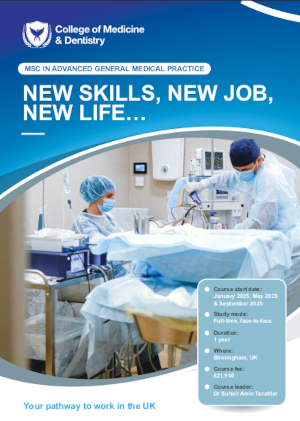“Primary Care Physicians” Perspective on Placebos in Clinical Practice: Attitudes, Beliefs, and Prescribing Habits
DOI:
https://doi.org/10.60787/njgp.v19i1.14Keywords:
Saudi Arabia, primary care physicians, placebo prescription, Physicians’ attitudeAbstract
Background: Global patterns in the clinical use of placebos differ due to physicians’ conceptual differences, culture, region, and setting. This study aimed to evaluate the attitudes, beliefs, and prescribing habits of primary care physicians toward the use of placebos.
Methods: This was a cross‑sectional study. An anonymous web‑based survey questionnaire was used to collect the information of primary care physicians (2017–2018). Descriptive statistics and frequency distributions were calculated using the Chi‑square and Fisher’s exact tests.
Results: The mean age of the participants was 41.3 ± 12 years. Male physicians (67%) outnumbered their female counterparts. There were 87/108 (80.5%) physicians who responded. Minority of the physicians (21%, n = 18) had used a placebo in clinical practice, and only 25% indicated placebo prescription to be ethically acceptable. The most common reasons for placebo use were to satisfy a complaining patient (27.6%), calm the patient (23%), and as a supplemental treatment to other medicines (20.7%). A significant association was found between the age (P = 0.03) and years of experience (P = 0.01) with the placebo prescribing practice. Majority (43.8 %) of non-Saudis compared to 15.5% of Saudi respondents reported using placebos (P = 0.01, odds ratio = 6.35). Majority (75%) of the respondents believed that placebos can be used in clinical practice without giving prior information to the patient.
Conclusion: Minority of the physicians used placebos in clinical practice. Clinical experience and cross border variation were seen among physicians in placebo prescribing practices. Physicians used placebos primarily for psychological benefit.
Downloads
References
Tilburt JC, Emanuel EJ, Kaptchuk TJ, Curlin FA, Miller FG. Prescribing “placebo treatments”: Results of national survey of US internists and rheumatologists. BMJ 2008;337:a1938.
Miller FG, Colloca L, Kaptchuk TJ. The placebo effect: Illness and interpersonal healing. Perspect Biol Med 2009;52:518‑39.
Fässler M, Meissner K, Schneider A, Linde K. Frequency and circumstances of placebo use in clinical practice – A systematic review of empirical studies. BMC Med 2010;8:15.
Kermen R, Hickner J, Brody H, Hasham I. Family physicians believe the placebo effect is therapeutic but often use real drugs as placebos. Fam Med 2010;42:636‑42.
Howick J, Bishop FL, Heneghan C, Wolstenholme J, Stevens S, Hobbs FD, et al. Placebo use in the United kingdom: Results from a national survey of primary care practitioners. PLoS One 2013;8:e58247.
Linde K, Friedrichs C, Alscher A, Wagenpfeil S, Meissner K, Schneider A. The use of placebo and non‑specific therapies and their relation to basic professional attitudes and the use of complementary therapies among German physicians – A cross‑sectional survey. PLoS One 2014;9:e92938.
Linde K, Atmann O, Meissner K, Schneider A, Meister R, Kriston L, et al. How often do general practitioners use placebos and non‑specific interventions? Systematic review and meta‑analysis of surveys. PLoS One 2018;13:e0202211.
Lichtenberg P. The role of the placebo in clinical practice. Mcgill J Med 2008;11:215‑6.
Fässler M, Gnädinger M, Rosemann T, Biller‑Andorno N. Placebo interventions in practice: A questionnaire survey on the attitudes of patients and physicians. Br J Gen Pract 2011;61:101‑7.
Berger JT. Placebo medication use in patient care: A survey of medical interns. West J Med 1999;170:93‑6.
Ortiz R, Chandros Hull S, Colloca L. Patient attitudes about the clinical use of placebo: Qualitative perspectives from a telephone survey. BMJ Open 2016;6:e011012.
Fässler M, Gnädinger M, Rosemann T, Biller‑Andorno N. Use of placebo interventions among Swiss primary care providers. BMC Health Serv Res 2009;9:144.
Hróbjartsson A, Norup M. The use of placebo interventions in medical practice – A national questionnaire survey of Danish clinicians. Eval Health Prof 2003;26:153‑65.
Simeos JB, Costa PS, Yaphe J. Placebo prescription and empathy of the physician: A cross‑sectional study. Eur J Gen Pract 2017;23:98‑104.
Harris CS, Campbell NK, Raz A. Placebo Trends across the Border: US versus Canada. PLoS One 2015;10:e0142804.
Sherman R, Hickner J. Academic physicians use placebos in clinical practice and believe in the mind‑body connection. J Gen Intern Med 2008;23:7‑10.
Raz A, Raikhel E, Anbar RD. Placebos in medicine: Knowledge, beliefs, and patterns of use. Mcgill J Med 2008;11:206‑11.
Nitzan U, Lichtenberg P. Questionnaire survey on use of placebo. BMJ 2004;329:944‑6.
Gray G, Flynn P. A survey of placebo use in a general hospital. Gen Hosp Psychiatry 1981;3:199‑203.
Thomson RJ, Buchanan WJ. Placebos and general practice: Attitudes to, and the use of, the placebo effect. N Z Med J 1982;95:492‑4.
Lynöe N, Mattsson B, Sandlund M. The attitudes of patients and physicians towards placebo treatment – A comparative study. Soc Sci Med 1993;36:767‑74.
Lichtenberg P, Heresco‑Levy U, Nitzan U. The ethics of the placebo in clinical practice. J Med Ethics 2004;30:551‑4.
Hassan T, Fauzi M, Hasan D. Perceptions of placebo therapy among health practitioners in Jazan region of Saudi Arabia. Int J Health Sci (Qassim) 2011;5:45‑9.
Al Jumaih A, Al Kadhim I, Al‑Seraya A, Nicholls A, Al Sayyari A. Placebo prescribing habits and views in a University Hospital. Webmed Central Bioeth 2010;1:WMC00587.
Published
Issue
Section
License
Copyright (c) 2024 Nigerian Journal of General Practice

This work is licensed under a Creative Commons Attribution-NonCommercial-ShareAlike 4.0 International License.








